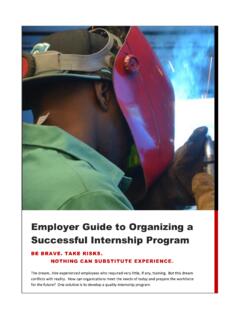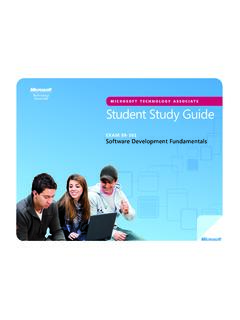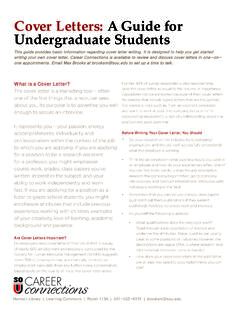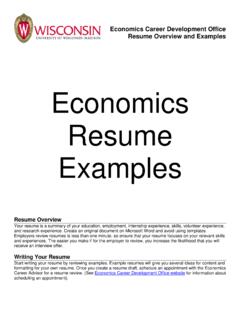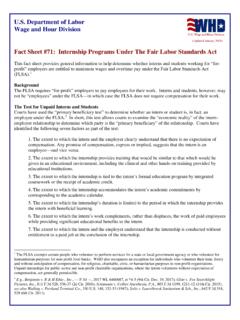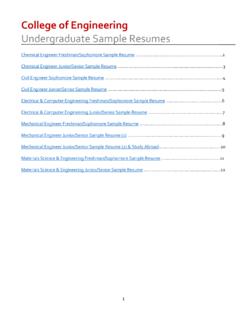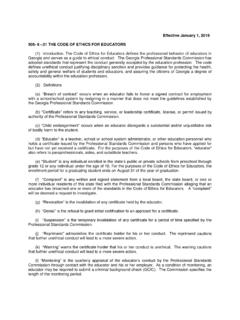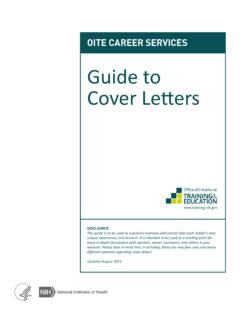Transcription of Texas Christian University Sample Learning Contract (MSW ...
1 1 Texas Christian University Sample Learning Contract (MSW Concentration) Core Competency Course Objectives Students will Activities: Due Dates Identify as a professional social worker and conduct oneself accordingly (Professional) ( ) 1. advocate for client access to the services of social work; 1. Intern will discuss w/FI the political ramifications that are present when advocating for client and how that may affect the agency or relationships with other organizations in the service delivery system. 2. Intern will demonstrate the ability to advocate for a client as part of the intervention process. (Professional) 2. practice personal reflection and self-correction to assure continual professional development ; 1.
2 Intern will discuss transference and countertransference issues or concerns with at least two clients. 2. Intern will be aware of self-disclosure and use only when appropriate 3. Intern will use self-reflection about cases and identify areas of improvement to FI. 4. Intern will complete a self-assessment inventory on attitudes and beliefs about ethics and/or values. (Professional) 3. attend to professional roles and boundaries; 1. Intern will maintain appropriate boundaries with clients and articulate with FI how boundaries affect the clinical relationship. 2. Intern will articulate the reasons that client confidentiality would be comprised and how these circumstances are affected by licensure.
3 (Professional) 4. demonstrate professional demeanor in behavior, appearance, and communication; 1. Intern will demonstrate professional behavior with clients and within the agency and will be able to articulate the importance of being professional to outside organizations. 2. Intern will demonstrate professional demeanor at all times while in internship. (Professional) 5. engage in career-long Learning ; and 1. Intern will read two journal articles that pertain to the placement and talk with FI about them. 2. Intern will attend at least 2 training/educational sessions at the agency and a related organization and report back to FI how this will help professionally.
4 3. Intern will attend one NASW branch meeting and report back to FI about the relevancy. 2 4. Intern will attend the NASW conference and report back to FI about what she learned. 5. Intern will complete four NASW CEU s online. 6. Intern will articulate the CEU requirements for licensure. (Professional) 6. use supervision & consultation. 1. Intern will discuss and review all documentation Intern will review all cases and seek assistance from FI. 2. Intern will schedule and come prepared with questions to weekly supervision with FI. 3. Intern will articulate how supervision is used in an advanced placement and how that differs from previous placements.
5 4. Intern will discuss self-awareness & insights about clients and colleagues w/FI, in order to develop professional values & behaviors at agency. (Professional) 7. Evaluate professional conduct in all social work roles and at all systems levels 1. Discuss with FI, roles that social workers play or could play at several levels and how professional SW behavior would be applicable. 2. Discuss with seminar class, how social workers conduct themselves differently than other professions/disciplines within the placement. Apply social work ethical principles to guide professional practice (Ethics) ( ) 8. recognize and manage personal values in a way that allows professional values to guide practice; 1.
6 Intern will discuss ethical issues and dilemmas and be able to articulate why one may be a dilemma or not 2. Intern will conduct a role-play with a values conflict with FI during supervision. 3. Intern will complete a self-inventory on attitudes and beliefs about professional ethics and values. (Ethics) 9. make ethical decisions by applying standards of the National Association of Social Workers Code of Ethics and, as applicable, of the International Federation of Social Workers/International Association of Schools of Social Work Ethics in Social Work, Statement of Principles; 1. Intern will consult and review the Social Work Code of Ethics on five cases and talk about how Intern applied the Code in at least 1 case w/ FI.
7 2. Intern will draw on the principals of client self-determination and discuss how this relates to at least 3 clients with FI. 3. Intern will understand their own biases and identify two situations with students where they have had to work through their own biases. 4. Intern will attend at least one professional training workshop on values/ethics. 3 (Ethics) 10. tolerate ambiguity in resolving ethical conflicts; and 1. Intern will complete two risk assessments and discuss w/ FI where ambiguity w/regard to ethics might present a problem. 2. Intern will assist a patient with Advanced Directives and talk with FI about the ambiguities involved in these types of decisions.
8 3. Intern will journal when experiencing an ethical conflict that is not clear cut and seek feedback from FI. (Ethics) 11. apply strategies of ethical reasoning to arrive at principled decisions. 1. Intern will discuss a situation where they felt conflicted by ethics and discuss with FI how they arrived at the decision utilizing the no harm position. 2. Intern will adhere to laws and public policies related to hospice patients and their families (abuse reporting, legalities, advanced directives). 3. Intern will adhere to child abuse reporting laws under supervision and guidance of FI. 4. Intern will discuss w/FI how ethical situations are approached when working on an interdisciplinary team.
9 (Ethics) 12. Demonstrate ethical decision-making that supports the moral and ethical function of all client systems 1. Intern will discuss in detail with FI as to how an ethical decision was arrived at regarding treatment intervention that took into consideration the client s moral views. 2. Intern will describe at least two ways that a case might have been handled & explain to FI as to why the course of intervention was taken based on specific examples detailed about client s values that were reflected in the decision. Apply critical thinking to inform and communicate professional judgments (Critical) ( ) 13. distinguish, appraise, and integrate multiple sources of knowledge, including research-based knowledge, and practice wisdom; 1.
10 For two cases, Intern will read a peer reviewed article related to the case and discuss the findings with FI as to how it might help. 2. Intern will discuss with FI how Intern used information from a client s file, interview, and collateral contacts to arrive at decisions made on behalf of the client. 3. Intern will work collaboratively with the interdisciplinary team (IDT) to achieve care goals for patient and talk with FI about the various ways of knowing about clients and perspectives from other professionals. 4. Intern will gather information for intake and assessment on 2 new students from multiple sources including their cumulative file, former counselors, the student, their family, and discuss with FI.
